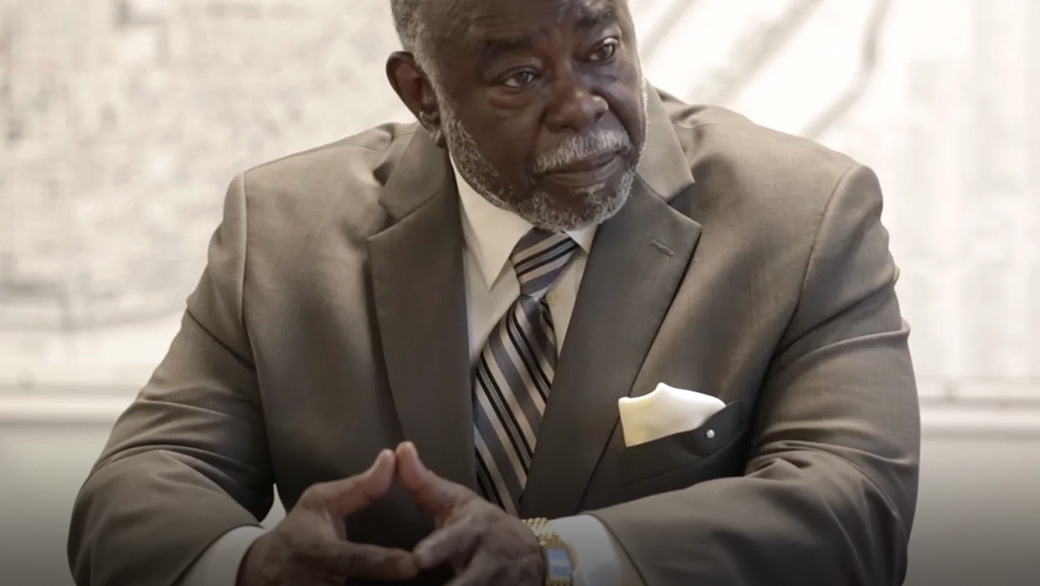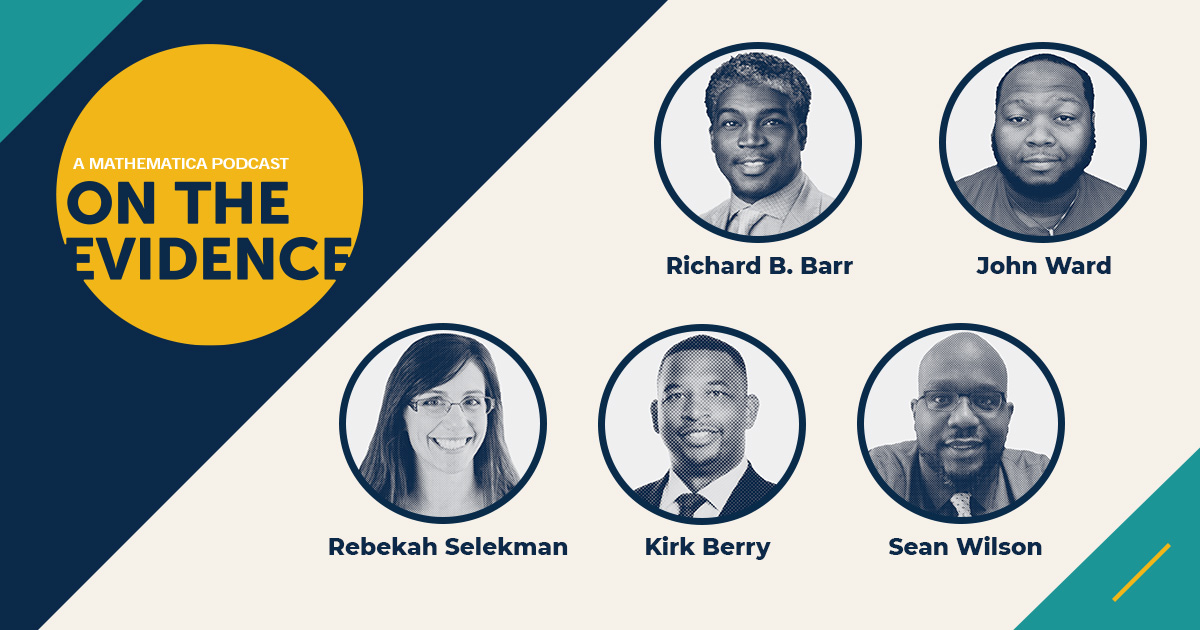Explore Our Research
Visit Strengthening Families and Responsible Fatherhood to learn more about our work and researchers in the field.
Give Dads a Voice in Fatherhood Programs
Give dads a voice in the implementation of programs designed to serve them.
Give dads a voice in the structure of programs designed to serve them.
Give dads a voice in the evaluation of programs designed to serve them.
Give dads a voice. This phrase echoes a common theme in the evidence on programs that engage fathers. Many participants in these programs simply want their voices heard. As the nation celebrates Father’s Day, we take a look at the evidence on fatherhood programs to shed light on opportunities to better engage the dads these programs serve.
Together with our partners at the U.S. Department of Health and Human Services (HHS), we uncovered evidence related to fathers’ engagement in human services programs. These programs are designed to strengthen child well-being by improving opportunities for families and fathers in the following areas:
Keeping dads engaged
The KEEP Fathers Engaged project is part of a federal effort to strengthen parent-child relationships. To identify key strategies for engaging fathers in programs across human services, we’re working closely with federal and nonfederal experts to discuss successful program models, strategies, and practices. Three case studies describe how the following programs serve dads in the following areas:
- Forever Dads: Father engagement in substance use disorder treatment programs
- Northeast Florida Healthy Start Coalition Fatherhood PRIDE (Parental Responsibility Inspiring Dads Everywhere): Father engagement in Healthy Start programs
- California WIC Association (Special Supplemental Nutrition Program for Women, Infants, and Children): Father engagement in family nutrition and health programs
“I always knew when I became a father, I wanted to be a permanent fixture in my child’s life. So, to see other people who have been through similar things that I went through and are still striving to do better, it kind of puts a battery in your back to be motivated to do the same.”
—John Ward, father and participant in the KEEP study

Halbert Sullivan, CEO and Founder, Father's Support Center St. Louis
The Parents and Children Together evaluation
The Parents and Children Together (PACT) evaluation challenges the negative perception that fathers with lower incomes who live apart from their children are not interested in assuming the role and responsibilities of fatherhood. This digital essay explores several fathers’ journeys and what some responsible-fatherhood programs are doing to help these fathers become better parents, providers, and partners.
Honoring a champion for fatherhood programs
While conducting the PACT evaluation, Mathematica worked closely with Halbert Sullivan, the founder and chief executive officer of Fathers & Families Support Center (FFSC). Mr. Sullivan passed away on April 15, 2021, leaving behind an important legacy of effective programs that connect fathers and their children. We honor Mr. Sullivan’s contributions to the field, and extend our condolences to Mr. Sullivan’s family and the FFSC staff. We’re pleased to share this video of Mr. Sullivan, with footage captured during our site visits.
"That’s part of being a dad—it’s a mixture of everything. When I was young, I often steered off and did the wrong things. But when I had my son, he was my first kid. He gave me a different outlook on life.”
—Father and participant in the PACT study.
Supporting dads during the COVID-19 pandemic
The pandemic continues to disrupt many of the ways organizations typically support fathers and their families. It has also motivated them to be creative, to adapt, and to experiment with digital programming. In this episode of On the Evidence, guests John Ward, Sean Wilson, Richard Barr, Kirk Berry, and Rebekah Selekman discuss the impact of COVID-19 on fatherhood engagement services and the advantages digital offerings have over traditional in-person services when it comes to helping fathers achieve their goals.

Improving fathers' involvement when their children are placed in foster care

Images from six improvement teams from child welfare agencies across the country that participated in the Fathers and Continuous Learning in Child Welfare project
New evidence explores the promise of strengthening fathers’ engagement in child welfare programs. One study is testing the use of the Breakthrough Series Collaborative (BSC) model to improve placement stability and permanency outcomes for children. Six improvement teams representing five state or county public child welfare agencies were recruited to participate in a BSC. Improvement teams used their experience engaging fathers and continuous quality improvement methods to produce quick wins, such as identifying fathers when an allegation of child maltreatment is first made. This work is part of the Fathers and Continuous Learning in Child Welfare project that Mathematica and the University of Denver are conducting for HHS’s Office of Planning, Research, and Evaluation.
Providing financial support
Fathers who do not have custody of their children provide financial support in many ways, and their reasons for supplying different types of this support are complex. A new study conducted for the PACT project investigates how fathers with lower incomes participating in responsible fatherhood programs perceive and provide financial support for their children. Most dads offer support in a variety of ways, including formal child-support payments and noncash assistance, such as food. During in-person interviews, fathers described a complicated set of factors that led to decisions about how they support their children. These factors include access to children, child well-being, co-parenting relationships with the mothers of their children, compliance with child-support responsibilities, and ability to provide support given their incomes.
These findings are consistent with other evidence on how fathers with child-support orders can find it difficult to make ends meet. We partnered with the Institute for Research on Poverty at the University of Wisconsin to examine the effectiveness of child-support and employment programs for noncustodial parents. Our impact analysis for HHS’s Office of Child Support Enforcement found that although the programs did not increase compliance with child-support responsibilities, they did substantially improve noncustodial parents’ satisfaction with child-support services. Another study describes how states vary in their implementation of enforcement tools and examines how enforcement practices vary systematically across states. We found no clear relationship between states’ use of these tools and states’ child-support collection rates.
Taken together, the evidence we've uncovered on fatherhood programs reveals how essential it is for dads to have a voice in the programs and services designed to serve them and their families. For more information about the research described, or to speak to family-support experts Rebekah Selekman, Sarah Avellar, Roseana Bess, or Matthew Stagner, please contact info@mathematica-mpr.com.

